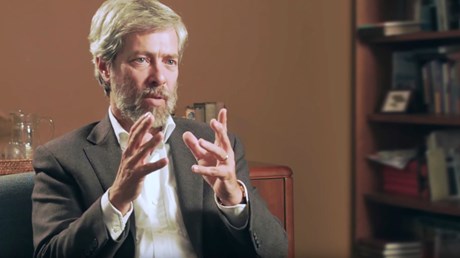A Christian college president defends institutional life—even the meetings!—as a high calling.

Many people take a pessimistic view of institutions as inherently corrupt and self-serving, and they decry institutional life as a form of soul-sucking drudgery. But for Gordon T. Smith, president of Ambrose University and Seminary in Canada, serving an institution can be an important avenue of spiritual formation. In his book, Institutional Intelligence: How to Build an Effective Organization, Smith makes the case for administrative work as a meaningful vocation. Tod Bolsinger, vice president and chief of leadership formation at Fuller Theological Seminary (and author of Canoeing the Mountains: Christian Leadership in Uncharted Territory), spoke with Smith about the role of institutions in advancing the church’s mission.
You confront the common thinking that institutional service is a necessary drudgery and make the case that institutions and their everyday practices (like meetings!) are actually both exciting and necessary. When did you first start thinking of yourself as an “institutional” guy?
I more or less backed into it. I was a professor who loved my scholarly work but who was asked to fill in as a dean. Because of the challenges the university faced at the time, I hesitantly agreed. Soon enough, I found that not only was I able to make a difference but that there was something deeply satisfying about leveraging one’s efforts and abilities with other people for a greater cause.
But I still had a kind of naiveté about administrative life that is sometimes common amongst faculty. There is a belief that we can just give ourselves to our students and our scholarship without having to take on the necessary requirements of a larger institution. As I took on more responsibilities, I began to …
Source: Christianity Today Most Read